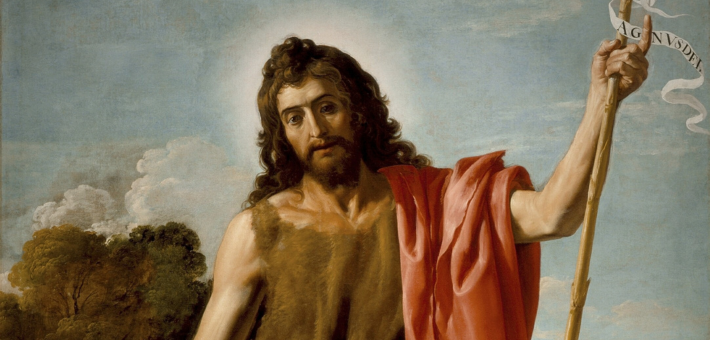Commentary on 1 Thessalonians 5:16-24
Living the life of the SpiriThis is the first day of the “O Antiphons,” a series of verses included in Evening Prayer during the final week of Advent. The first antiphon is O Sapientia (“O Wisdom”), which in its versified form reads:
O come, O wisdom from on high, embracing all things far and nigh:
in strength and beauty come and stay; teach us your will and guide our way.
(“O Come, O Come, Emmanuel,” ELW hymn 257, stanza 2)
Each antiphon highlights an aspect of Christ; this one describes Christ as wisdom, whose teaching will guide us through our lives.
Paul’s exhortation at the end of 1 Thessalonians captures some of the wisdom he received from Christ, about which he is reminding the congregation to whom he is writing. The use of the imperative verbs throughout this exhortation underscores the urgency with which Paul is writing. The text that prefaces this final exhortation reminds the congregation that the Lord will come “like a thief” in the night (verse 4), so they should “keep awake” (verse 6) and build one another up in community (verse 11). These images connect this Third Sunday of Advent with the previous two Sundays.
The refrain of the above-quoted hymn also connects to the first line of Paul’s exhortation: “Rejoice!” At the beginning of his letter, Paul reminds the congregation to receive what they have been taught with joy (1:6), so as to live as examples for their neighbors. This joy, signified by the pink candle (Gaudete = rejoice) on the Advent wreath, is meant to spill out beyond the season into the entire Christian life and thus throughout the whole liturgical year.
In his short book Life Together, written originally as a guide for communal learning in seminary, 20th-century theologian Dietrich Bonhoeffer describes the importance of praying without ceasing:
The unity of prayer and work, the unity of the day, is found because finding the You of God behind the It of the day’s work is what Paul means by his admonition to “pray without ceasing” (1 Thessalonians 5:17). The prayer of the Christian reaches, therefore, beyond the time allocated to it and extends into the midst of work. It surrounds the whole day, and in so doing, it does not hinder the work; it promotes work, affirms work, gives work great significance and joyfulness. Thus every word, every deed, every piece of work of the Christian becomes a prayer, not in the unreal sense of being constantly distracted from the task that must be done, but in the real breakthrough from the hard It to the gracious You.”1
For Bonhoeffer, the Christian cannot separate prayer, which often takes us out of the world to be in relationship with God, from work, which places us directly in the world to be in community with one another. The two go hand-in-hand, where one’s prayer is almost indistinguishable from one’s work. To pray without ceasing places us in direct contact both with God and with our neighbors—the One from whom our work originates and the ones who are the recipients of our work.
Not only is the Christian life one of rejoicing and continuous praying, but it is also one of thanksgiving. Preachers must be careful about how they frame this language. Too many Christians have been subjected to bad theology that tries to discount the suffering that people experience. Paul’s exhortation is not a platitude for not taking suffering and pain seriously; instead, Paul is calling the faithful to give thanks in spite of what is happening at the present moment, for God is still present in the midst of whatever circumstances we find ourselves in.
Following the short affirmative phrases that begin the exhortation, Paul continues with short prohibitions: do not quench the Spirit, do not despise the prophets’ words, and do not engage with evil. In between the affirmative and the prohibitory phrases is a larger statement: “for this is the will of God in Christ Jesus for you” (verse 18b). While the coordinating conjunction “for” and the use of a semicolon in the New Revised Standard Version (or comma in other translations) may assume a direct connection between God’s will and giving thanks in all circumstances, it may be more appropriate to see this statement as the structural and thematic center of the entire exhortation.
For Paul, living the life of the Spirit—which includes joy, prayer, thanksgiving, goodness, prophetic guidance, and that which is lifegiving—is the will of God.
As we continue our journey through Advent and soon arrive at the manger, the preacher can use Paul’s exhortation as a reminder of the newness that comes with the Incarnation. This lection concludes with a note of certainty, in that God will do these things because God is faithful.
Notes
- DBWE vol. 5 (Minneapolis: Fortress Press, 1996), 75–76.


December 17, 2023